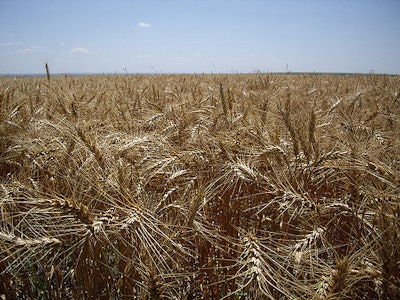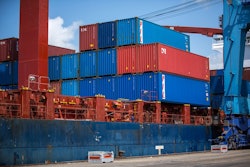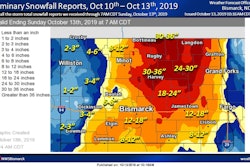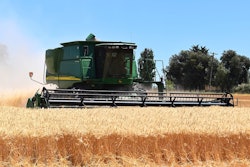
Export Sales Announcement
Private exporters reported to the U.S. Department of Agriculture export sales of 132,000 metric tons of soybeans for delivery to unknown destinations during the 2019/2020 marketing year.
Bloomberg Poll Shows Declining U.S. Winter Wheat Area
A recent analyst poll from Bloomberg showed U.S. winter wheat planted area expectations at 31.118 million.
Last year, plantings totaled 31.159 million.
USDA’s initial new-crop winter wheat area estimate is issued in January.
The lowest total planted on record was 29.196 million acres in 1909.
Nearby Kansas City futures were trading around $5-$5.50 a bushel last year during key planting season.
This year, futures have been trading around $4-$4.30 in September/October.
FBN’s Take On What It Means: The price decline from this time last year points to a reduction in planted area for HRW. Nearby Chicago wheat futures are in line with last year at this time. Assuming no increase in planted area and trend-like yields, stocks for all wheat, including winter wheat classes, likely will decline.
EPA Public Hearing on Trump Biofuel Proposal is Today
Oil and corn industry representatives are expected to vocalize negative comments to the EPA.
The core issue is a proposal that would increase the amount of corn-based ethanol refineries must blend next year to make up for volumes waived.
Farmers did not respond positively to the proposal, unexpected by the Trump administration, and neither did the refineries.
RFS waivers have increased under the Trump administration, upsetting the corn industry while refineries say they waivers are crucial.
FBN’s Take On What It Means: The Trump administration has its hands full with its biofuels proposals. With an election year around the corner, Trump wants to keep oil and ethanol industries on his side, but is struggling to keep both parties happy. FBN believes the increased exemptions along with the proposed changes to how volumes are calculated are a negative for the U.S. producer as it reduces the demand for corn and soybeans, hurting local basis markets.
The risk of trading futures, hedging, and speculating can be substantial. FBN BR LLC (NFA ID: 0508695)










